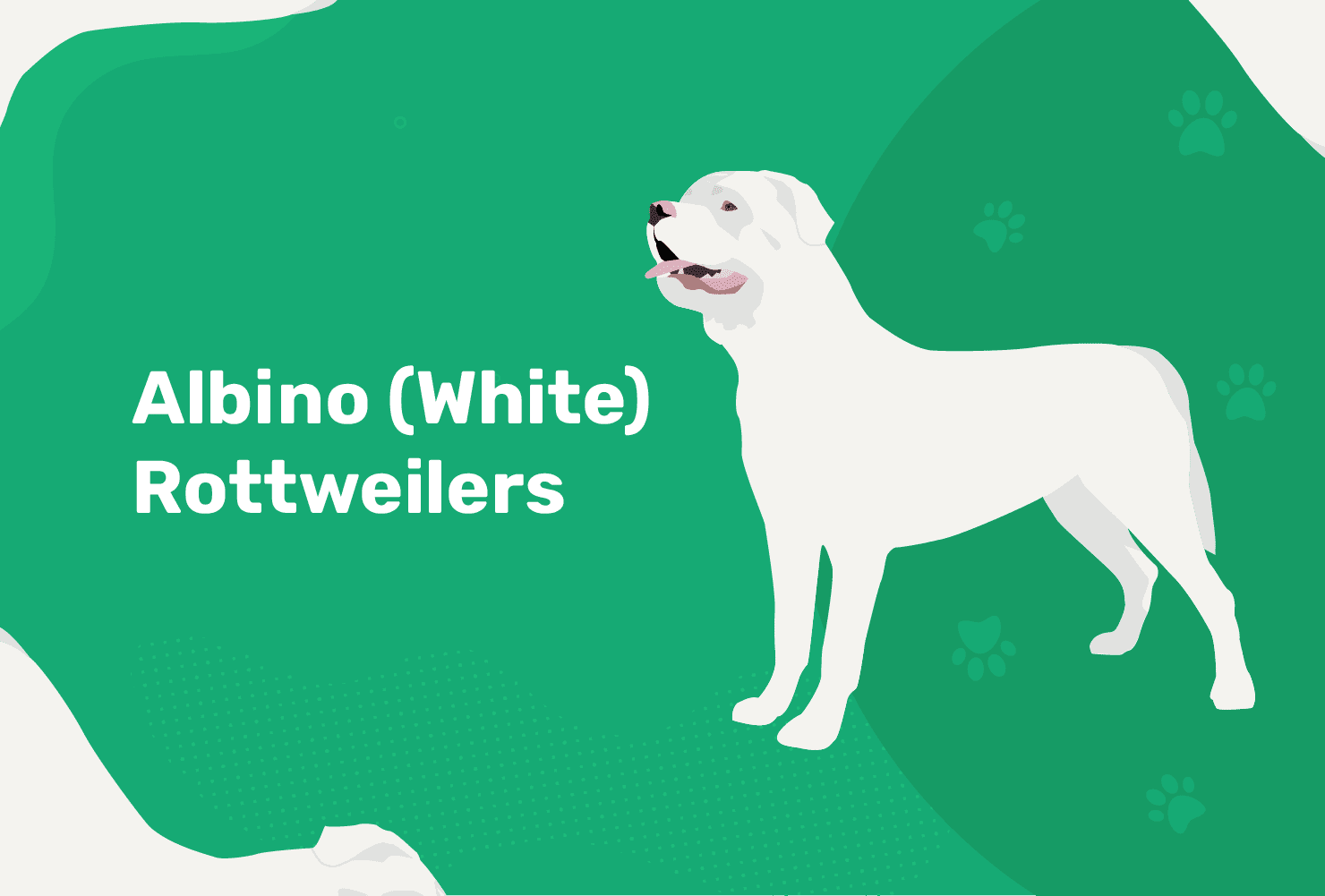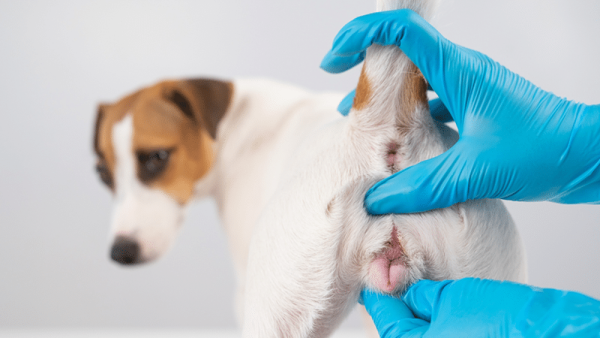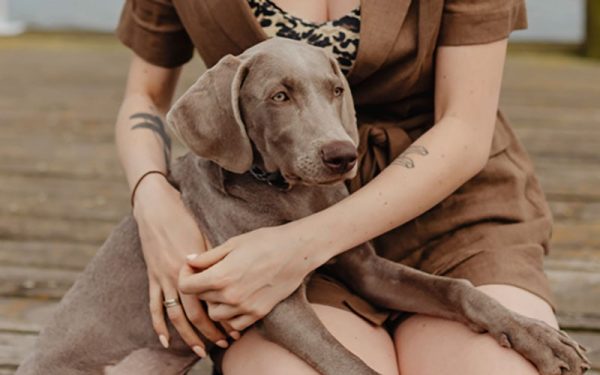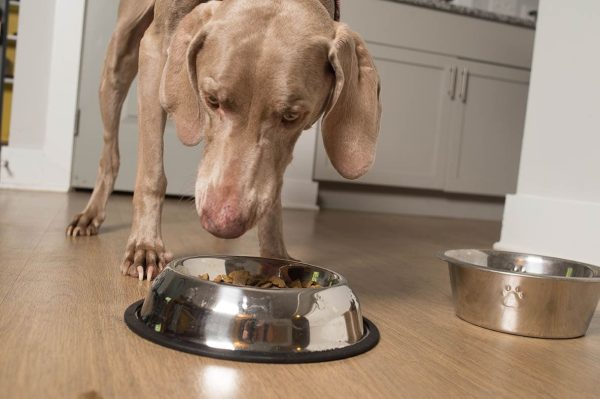Rottweilers have been beloved working dogs, protectors, and family pets for centuries. They’re widely known for their black and tan coats and thick, blocky heads. However, unscrupulous breeding practices have led to some severe health problems for these wonderful dogs, including hip dysplasia, bone cancer, and kidney disease.
Far less common, but just as serious, is albinism. While you are unlikely to find many albino Rottweilers out there, if you do come across one, you must be aware that this dog is very likely to be unhealthy and will require significant care throughout its life. Keep this in mind if you are considering adopting such an animal.
Keep reading to learn more about albino Rottweilers, their health issues, and additional care they will need if you have one as a pet.

White or Albino – What’s the Difference?
It’s important to note that there are two different dogs that appear to be white Rottweilers. A white Rottweiler is not the same as an albino Rottweiler.
Visual Differences
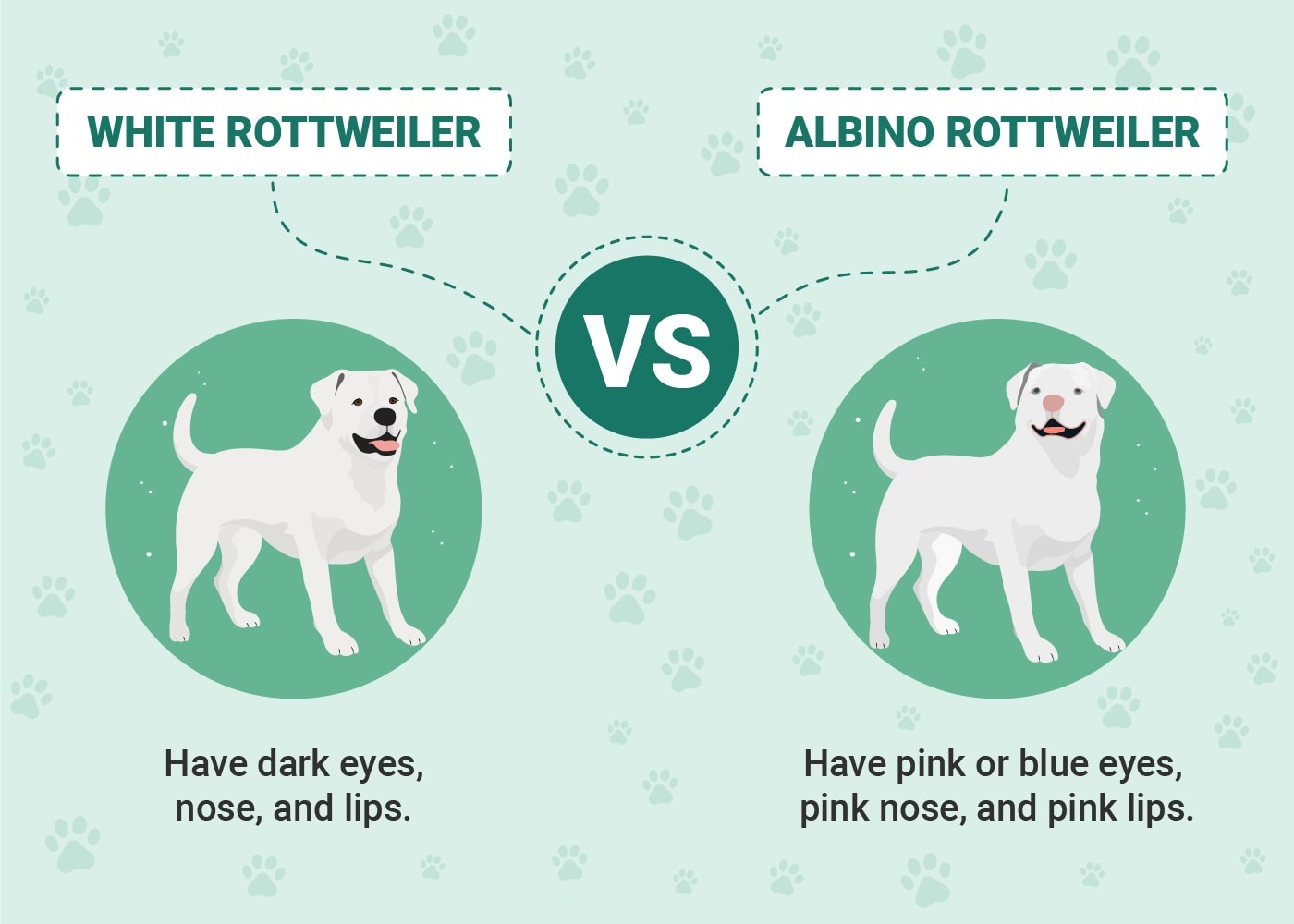
- Not a genetic mutation
- Generally result from breeding a Rottweiler with a naturally white dog
- Have dark eyes, nose, and lips
- Not more prone to health problems
- Lack the necessary genes to produce melanin
- Have significant health problems and shortened lifespans
- Have pink or blue eyes, pink nose, and pink lips
The vast majority of white Rottweilers are just the result of breeding an all-white dog, like a white German Shepherd, with a regularly colored Rottweiler. These dogs aren’t prone to vision, hearing, or other issues that an albino Rottweiler is.

Albino Rottweiler Health Problems
A true albino dog will have serious problems with its health.
- Eye defects – The lack of pigmentation around the eyes makes them appear pink. Their eyes are incredibly sensitive to light. The eyes may also form abnormally. They might be smaller than normal or underdeveloped. Many albino dogs have poor vision or blindness.
- Skin sensitivity – Albino dogs also have skin that burns easily in the sun. They are prone to skin infection and skin cancers, making it necessary to protect them from the sun and monitor their skin.
- Deafness – Some albino dogs also suffer from partial or total hearing loss.
- Weakened immune system – Although the reason is uncertain, many albino dogs are more prone to illness and infections than those not afflicted with the condition.
Special Care for Albino Rottweilers
These serious health concerns mean that you must be prepared to provide your dog with more care throughout its life. The propensity for illness and need for sun protection can mean you’ll need to be cautious about day-to-day activities with your dog.
- Goggles are a must – Albino dogs have poor vision and eyes that are extremely sensitive to light. You’ll need to protect their eyes anytime you’re outside in daylight with ray-blocking dog goggles or sunglasses.
- Cover their skin – Skin cancer is highly prevalent among albino dogs. You must apply sunscreen and/or have your dog wear a sweater or bodysuit when out in the sun. They need the extra coverage or their skin will burn. Do invest in a sunscreen specially formulated for dogs to avoid any toxic ingredients from human sunscreen.
- Be mindful of outdoor time – To mitigate the risk of sun damage to your dog’s skin and eyes, it may be wise to avoid taking them out during the day. Early morning and evening hours when the sun is low are better times to avoid danger to their sensitive bodies.
Albino Rottweiler Temperament
While they may be more prone to illness and infections, there isn’t any evidence that albino Rottweilers display more aggressive or negative behaviors than others. While this breed may have gotten a bad rap in the past, many well-trained and socialized Rottweilers make excellent family pets.
As with all dogs, proper socialization from an early age and close monitoring around children and other pets are a must.

Final Thoughts
You should never purposely breed an albino Rottweiler. The condition comes with serious health problems for the dogs and an unpredictable pet that needs more frequent care for you. It’s important to only purchase puppies from reputable breeders to avoid genetic defects and ensure you are getting a healthy, happy dog to add to your family.
See also:
